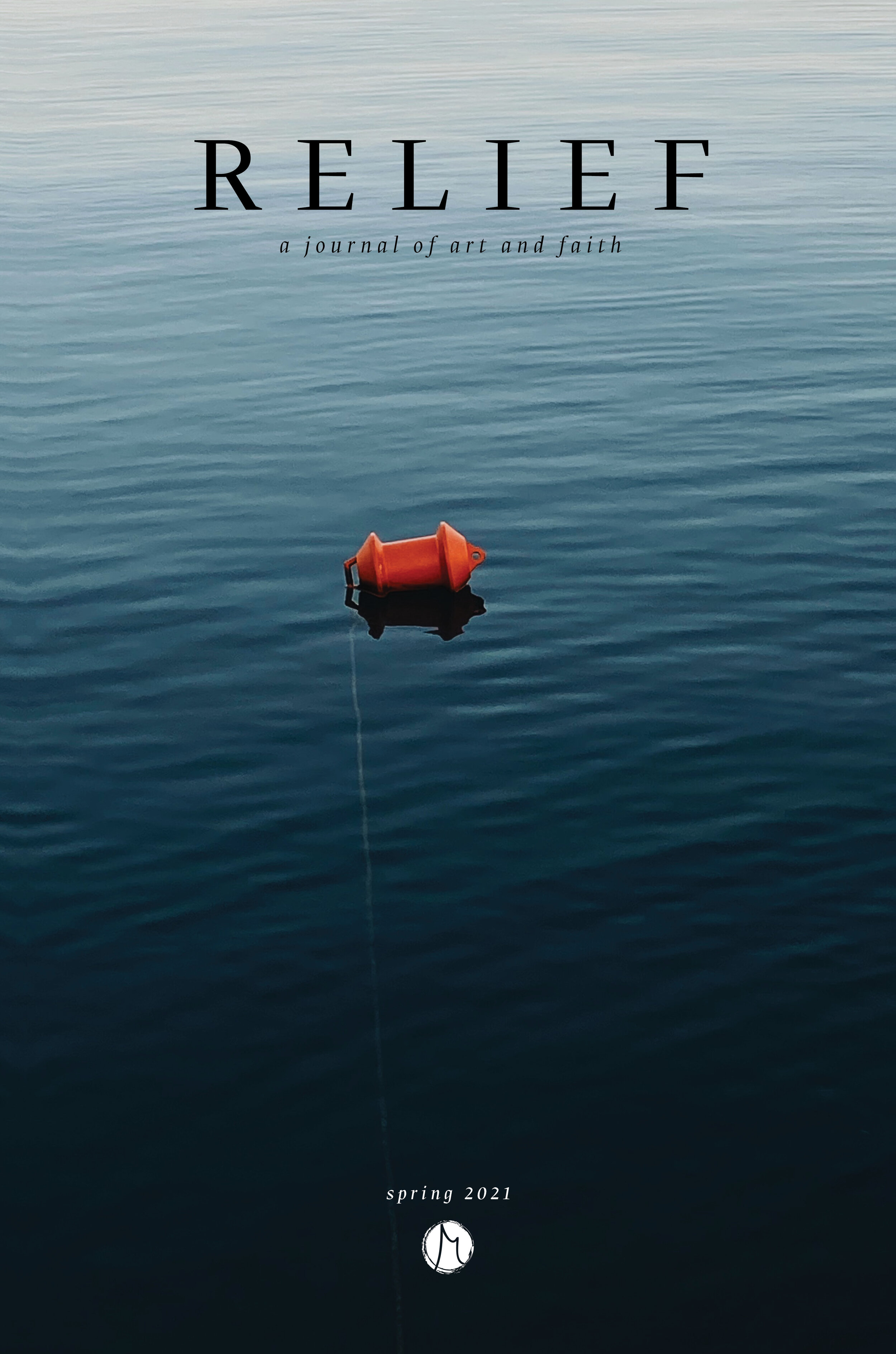Olga Dugan's Triptych of Poems (2021 Editor's Choice Poetry)
Olga Dugan
THE WOMAN AT THE WELL
Olga Dugan
for Natasha
A good man told me all
that ever I did. Before him?
I believed—just a Möbius
strip of infinite divorces
then drinks at The Well
somehow replaced ‘in what.’
But this would be the last
time I’d set out, sauntering
and switching to the bar.
Since The Well usually
filled with fish most Sunday
afternoons—no telling my
catch, right? When I see this
dude standing outside, long
handled cup in his hand. Try
to ignore him; but he, taking
notice, points his cup at me,
“What you need with want?”
He’s comely, too poor for
a seventh husband. Still,
“pardon me?” I ask. “Want,”
he starts. “Makes you a corn-
field ripe for ruin. Want is
hefty purses grown lean when
young husbands grow old.
And wise. A sapling that bows
to air, but tap-roots the heart
‘til it cleaves your self
in two—want.” Don’t know
what offended most: the say-so
in this cat’s voice, his looking
like he lived the jazz he spoke,
or how hard his strange words
punched. Fear wears funny
masks, “I just want
a drink,
so excuse me.”
He simply
holds out his cup. I mean to insult: “How much
you want, Mister?” Spot a dime
in my bag when I hear,
“Truth is clear as any water.
Drink it. Thirst no more.”
Not begging. He’s offering.
So, I peer over the rim of his
cup and in the mirror there
see my “self” staring back.
Tears, uncalled, drop-
for-drop in puzzle pieces, put
together clarity, uproot want’s
grip, release sapling to wind
until I become a place.
Not a mountain, a sanctuary,
but a heart full of rain.
A well, brimming his cool
words. We sit on a bench.
Talk down Hesperus, the blue
that deepens the end of day.
Then, he goes his way,
and I leave, too; no thought
of The Well. My thirst quenched.
I had climbed the ladder
of that long-handled cup
from the bottom of a bottle
and out onto a straight line home.
CANDLE IN A GALE WIND: AN ODE TO FAITH
Olga Dugan
for Ola M.
homelessness—in the pandemic
year, and still in the coming light
of relief, she sees its gusts
like hurricane winds displace
devastate lives, some she’s even
spared shelter in the very house
out of which she’s now being turned
for choosing meds food over rent
she’s not thinking about that
though, or so her stress-free mien
suggests, hair a gray taper lit
on brown wick of neck rising
above the collar of a lounge set, polka-
dot canary on robin’s egg faux silk
cherry-oak back of queen anne’s
chair hinging bodily frailness
but also strength earned from four
score and nine of work and ware
she sits watching a breath of fury
come just to whisk away her
furniture clothing knickknacks
bridges between past/present that once
gone, will strand her on one isle
leaving her baffled for lacking sight
of the other—but he’s crying, this
gentle force despite his gale, telling
a reporter she could be his mother sister
she wants to comfort the wind
and so, not knowing the sheriff buys
her one more night in the house, not
knowing the reporter’s video goes
viral in minutes, not knowing
a famous musician sees it—reaches
out singing but for grace there go I,
this gift of ages waves him over
and standing half his height
gives the landlord’s mover a tissue
from her canary on robin’s egg pocket
And promises “right there, right there”
spreading a hand over his heart
“right here, I’ll always have a home”
ANOTHER REAPING—DECEMBER 29, 2019
Olga Dugan
think by now he’d catch on
but no, turning jealous eyes
on yet another altar, on other siblings
he refuses to keep, Cain quite deliberately
attends another Sunday service
at another church years from Antioch
miles from Sutherland Springs
a wolf come to sheep’s pasture,
the miscreant bids the faithful
walk with me, talk with me
and they do
for when he has the guile to ask—
not knowing when his Lord will come—
how do we love our neighbors
as ourselves?
pastor, members reflect on having
welcomed him—a stranger—inviting
him into the fold
the sun sets their witness aglow
with the colors of promise
bending light through clear clean glass
into red indigo violet glints
off polished wood, glossy programs,
metal . . . as Cain sits waiting
giving no hint of the evil intent that’s ridden
his back through hallowed doors and now
crouches at his side until glints become glare
off leaden slugs that send the flock
screaming, ducking under pews, racing
flying songbooks to the floor; until he
slays two Abels, wounds numbers more;
until the ditch he digs swallows
him whole, as one shepherd watching
the signs of such turbulent times
shoots back—
another blow to Cain’s head
and so, his story repeats its wisdom
grown ancient as the first fratricide, its mystery
made naked as the truth come every harvest
when the sower never fails to reap
what he tends from the dirt for others
Olga Dugan is a Cave Canem poet. Nominated for Best of the Net and Pushcart prizes, her poems appear in many literary journals and anthologies including One Art, Ekstasis, Relief: A Journal of Art and Faith, Sky Island Journal, Emerge Literary Journal, Channel (Ireland), Cathexis Northwest Press, Kweli, E-Verse Radio, The Windhover, Grand Little Things, Ariel Chart, The Write Launch, Poems from Pandemia – An Anthology, Cave Canem Anthology: XIII, and Red Moon Anthology of Modern English Haiku. Olga has a Ph.d in literary history and culture from the University of Rochester, and articles on poetry and cultural memory appear in The Journal of African American History, The North Star, and in Emory University's “Following the Fellows.”
This triptych of poems was first published in the 2021 issue of Relief.
